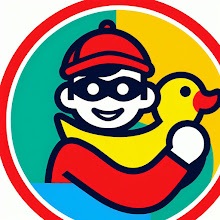Part 4: 45' 00" - 52' 50"
Topics: What is Conservation of Information? Example continued.
William Dembski: These tickets have probability 1/2, 1/2, 1/2, 1/2, and this one ticket has probability 1. If I happen to get this ticket, I have probability 1/2 of choosing curtain 1, but it is also probability 1/9 of getting that ticket. When you run the numbers, at the end of the day, by using these tickets, I'm not better of than I was originally. It is still only a probability of 1/3 of finding curtain 1, of finding the prize there. Once one factors in how did I limit myself to these tickets in the first place. Going from this whole space to this, that is information intensive. I have ruled out certain possibilities, that incurs an information cost. As I said, the cost is 5/9. It is really just an accounting thing. That is what conservation of information is. Once you factor in the information that it takes to get the search, get a search which has improved the probability for finding your original target, we haven't gained anything. It is called Conservation of Information, as the problem can even get worse. At this case, we have broken even, we are back to 1/3 for the probability of getting the prize, but let's say, you really want to improve the probability, you want to guarantee that you get that prize with this tickets. Well, then you have got only one ticket that will work for you.






